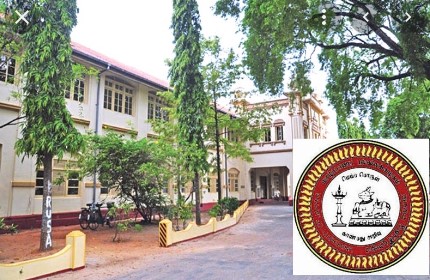The Jaffna University Students’ Union has lashed out at the Chinese envoy in Sri Lanka, Qi Zhenhong, for extending support to the Sri Lankan government’s stand on the war crimes issue that is to come up for discussion at the UN Human Rights Council’s session in September.
In an article sent to the Sri Lankan media recently, the envoy had indicated that China would support Sri Lanka in contrast to some countries which had either ruled or invaded Sri Lanka in the past. The allusion was to the Western powers and India.
Portraying China and Si Lanka as two countries which had faced, and are still facing threats from outside forces, the envoy called for a joint Sino-Lankan effort to resist such threats. The envoy was alluding to the US threat to the “One China” policy through its support for Taiwanese separatists, and to India’s objecting to the docking of the Chinese survey vessel Yuan Wang 5 at Hambantota port “on security grounds”. For the envoy, both cases represented an abridgment of the sovereignty of China and Sri Lanka.
Tamils Wary
Sri Lankan Tamils of the North and East, are wary about China’s bid to make inroads into the North and East as they fear that the Tamils too would fall into a Chinese “debt trap” as Sri Lanka had. They also fear that an increasing Chinese influence on Colombo would embolden the latter to continue its policy of not yielding to the Tamils’ long-standing demand for autonomy within a united Sri Lanka. China has consistently voted against the Western Core Group’s resolutions against Sri Lanka at the UNHRC. While China’s stand pleases the majority Sinhalese, it irks the minority Tamils whose bid to secure autonomy through peaceful means and by war had both been crushed by successive Sri Lankan governments.
The Jaffna University Students Union told a media briefing that would appeal to the Chinese envoy to understand the Tamils’ demands and their plight and stop supporting Sri Lankan governments. But the union leaders also said that they did not believe that China would change its stand. They characterized the Chinese envoy’s earlier visit to the Nallur Kandaswamy temple in Jaffna dressed in the traditional Tamil style as an effort to hoodwink the Tamils.
Perhaps due to objections from the Students’ Union, a function to be held at the university to sign a collaboration agreement between the Agriculture faculty and a Chinese Agricultural institute was indefinitely postponed and the envoy’s visit to Jaffna for this purpose was called off.
Asked about the status of the visit, Luo Chong, spokesman of the Chinese embassy, said: “Ambassador is always keen on another visit to Jaffna. Northern Province is an important part of China-SL friendship and cooperation. About the exact time of visit, I don’t have information at the moment.”
China has been making persistent efforts to make inroads into Sri Lanka’s Tamil-speaking Northern and Eastern provinces for three reasons: 1) Beijing believes that China should be able to invest and have development projects in all parts of Sri Lanka 2) India cannot claim that the Tamil-speaking North and East is under its exclusive sphere of influence and that countries “inimical” to India should not have projects there which could have security implications for India. 3) China wants to have a foothold in North Sri Lanka as part of its larger policy of encircling India.
China has set up an export-oriented fisheries development project in Jaffna. But its bid to set up three small-size power projects using renewable energy in three islands off Jaffna but close to India failed because India objected citing security issues. Earlier India had objected to a proposal to set up a Chinese-built aircraft repair facility at Trincomalee in the Eastern Province.
India’s security interest is safeguarded by the India-Sri Lanka Agreement of July 1987 signed by the then Indian Prime Minister Rajiv Gandhi and the Sri Lanka President J.R.Jayewardene.

